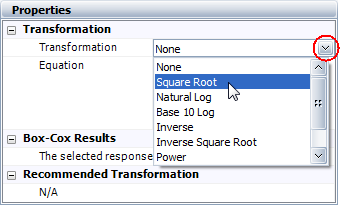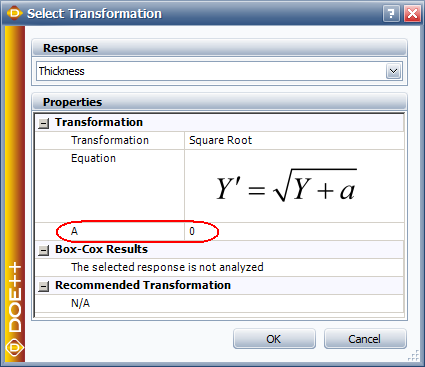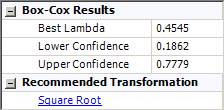

| Related Topics: | ||
Analysis of variance is based on two assumptions:
The response in question is normally distributed.
The error variance of each observation is constant (i.e., it does not change with either the observation time or the observed response value).
If any of these assumptions is violated, applying a transformation to the response may be useful.
The Select Transformation window allows you to select a transformation to apply to each response. It is accessed by choosing Data > Design > Select Transformation or clicking the icon on the Data tab control panel.
![]()
To use the window, first choose the response you want to work with from the Response drop-down list.
Next, select a transformation from the Transformation drop-down list.

The equation for the transformation will be displayed and input areas for any required inputs will be available under the Transformation heading. In the example shown next, 0 was entered for the A parameter in the equation  .
.

If you are not certain what transformation, if any, to apply to the selected response, you can calculate the data in the folio and then obtain information on the Box-Cox transformation results for the selected response, which helps in selecting an appropriate transformation. The Box-Cox Results area will display the best lambda value for the response, including the two-sided confidence bounds at the level determined by the risk level (alpha) you have specified. The recommended transformation will be displayed in the Recommended Transformation area, as shown next.

Click the link to automatically choose it in the Transformation drop-down list.
Repeat the process for any other responses you want to apply a transformation to, and then click OK to return to the folio, where you can recalculate using the selected transformation(s).
© 1992-2015. ReliaSoft Corporation. ALL RIGHTS RESERVED.